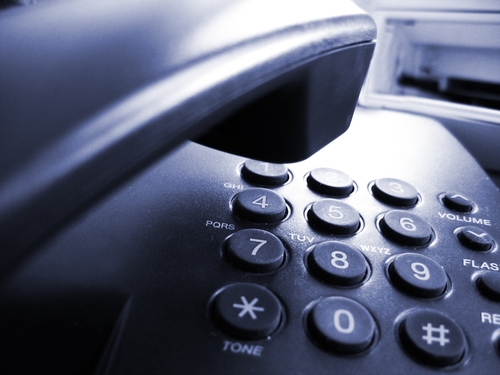The problem
Our phone lines are always busy and reception staff can sometimes be overwhelmed with callers. This is because we have five sites across Liverpool and are one of the largest practices in the Merseyside area with around 23,000 patients on our register.
What we did
To solve this problem, we introduced automated telephone booking with a text messaging service. The automated telephone booking system uses the surgery’s usual phone number. Callers phone the practice and enter their date of birth and phone number for security purposes. The system is able to detect spaces in the diaries of our GPs and nurses and the patient then selects the time which best suits them by pressing a button on their phone. They can also use the system to cancel, check or rearrange appointments.
We use the text messaging facility to send automated appointment reminder, information about events at the practice and individual communications such as ‘Dear Mrs S, your prescription is ready for collection’. Patients can also cancel their appointment by replying to their appointment confirmation text.
Results
The automated phone booking system has proven popular with many of our patients who find it easy to use and appreciate its flexibility. As a result, our phone lines are less congested, even at busy times such as when the surgery first opens. We have also seen an increase in people phoning up to make, check or cancel appointments out of hours. Ultimately, it means we are able to offer our patients more choice in how and when they make appointments.
Recent figures at our Towerhill surgery show that Patient Partner is used to make, amend or cancel around 900-1,000 appointments every month (out of 3,300 total appointments per month). Assuming an average of three minutes per call, we estimate that the system saves our receptionists around 46 hours a month – and that’s just one of our sites. With this time, receptionists can do other activities including chasing up hospital referrals, contacting patients on behalf of GPs for appointments and messages, updating notes and transferring GPs’ paperwork into patient files, processing prescriptions and liaising with GPs on a range of patient care issues. In addition, making it easier to cancel appointments immediately frees up cancelled slots to be utilised for the next caller.
Our DNAs have reduced by around 25%, which we believe is at least partly due to using text messaging combined with 24/7 automated access. Our staff love the system as it helps reduce the stress of an overstretched switchboard and disgruntled patients who have struggled to get through on the phone. It makes it easier for them to handle urgent calls and patients who may need additional support.
Challenges
Systems like this cost money (typically £8,000 for a 7,000 patient practice), but we are fortunate that funding for the service is shared with the CCG, with the support of St Helens and Knowsley Health Informatics Service. We also had some questions about the level of technology involved and managing the transition, but StHK HIS helped with the installation, providing project management and technical support as required.
We had concerns before installation that some people might be reluctant to use an automated service. However, most have found the system easy to use and the statistics show that it is well used across all age ranges.
To implement an automated system successfully I would strongly advise publicising the system well before implementation to ensure patient ‘buy in’. Fortunately, we had support from the system’s developers who provided leaflets and posters to help explain what the service was and how it could be used. My second tip is to ensure that you have correct phone numbers for your patients before installation. You can do this when you publicise the system by encouraging patients to check their details are correct, as well as encouraging practice staff to check that contact details are up to date when they speak to patients.
Suzanne Evans is the Data Quality and Performance Manager at The Massaarani Practice in Liverpool
The automated phone system used here is Patient Partner developed by Voice Connect, which includes a text messaging service, Medical Messenger. There are other suppliers of text messaging systems, for example mjog and iplato.

















